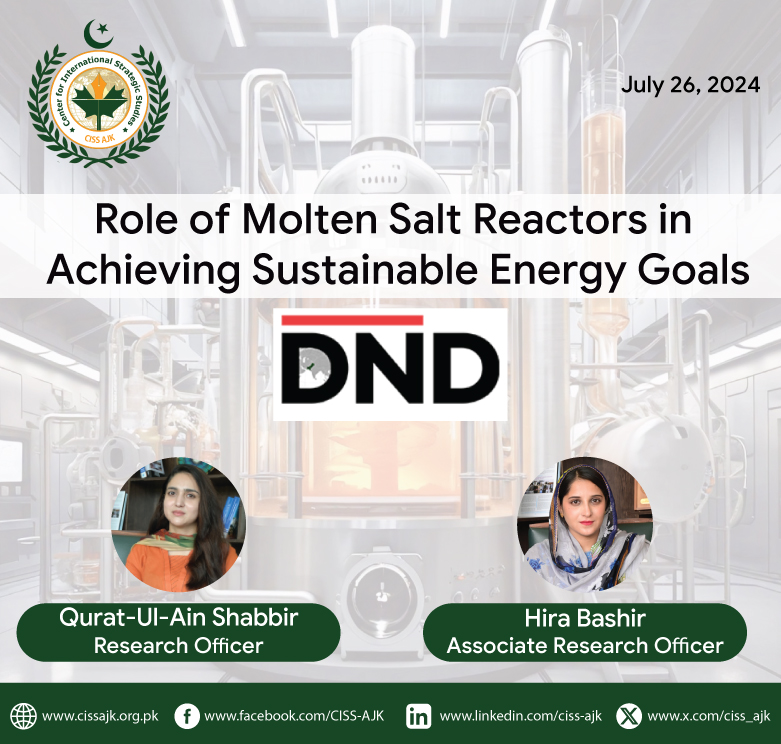To ensure that carbon emissions reach net zero by the year 2050, there is a dire need for escalated growth of clean energy. Nuclear power fits into this energy transition process in a very crucial way. While traditional light water reactors will continue to be used in the near future, new and innovative technologies, like Molten Salt Reactors (MSRs), are on the horizon. MSRs represent a promising advancement in nuclear energy. MSRs are a new type of nuclear reactor that is safe, efficient, and environmentally friendly, different from currently available nuclear reactors. They have dormant safety measures like Negative Temperature Coefficient, which indicates that temperature and power production in reactors will always reach equilibrium to avoid disastrous accidents. Concerning operational flexibility, MSRs can adjust their power output without needing to move control rods, which is often required in other reactors. This ability allows MSRs to achieve higher thermal efficiencies and generate more electrical power. They are also beneficial in meeting climate targets through reduced emissions of Green House Gases and fossils; in simulations, they cut backup fossil fuel use by 82 percent. This way, the application of MSRs can put a dent in the towering inventory of long-lived nuclear wastes apart from using thorium and reprocessed materials to enhance resource utilization and efficient utilization for sustainable energy. Thus, MSRs offer a realistic approach toward the provision of nuclear power which is safer, more efficient, and cleaner.
Molten Salt Reactors (MSRs) are more than just advanced technology; they play a crucial role in fighting climate change and supporting sustainable development. They contribute directly to Sustainable Development Goal (SDG) 7 by providing a reliable, low-carbon energy source that helps reduce our reliance on fossil fuels. This shift is vital for SDG 13, as it lowers greenhouse gas emissions and helps combat climate change. Additionally, MSRs improve the sustainability of nuclear energy by producing less nuclear waste and being more resistant to nuclear proliferation, which supports SDG 12. Their ability to use fuels like thorium and uranium-238 helps conserve natural resources and aligns with broader sustainability goals. In essence, MSRs are a key tool for achieving a cleaner and more sustainable energy future.
The IAEA is actively supporting MSR development through various initiatives, including technical meetings, workshops, and collaborative efforts with organizations like the OECD-NEA. The IAEA’s Nuclear Harmonization and Standardization Initiative (NHSI) aims to accelerate the deployment of advanced reactors, including MSRs. As the world faces the twin crises of climate change and energy insecurity, the role of MSRs in providing a clean and reliable energy source cannot be overstated. By prioritizing the peaceful use of nuclear technology over military applications, we can pave the way for a more sustainable and secure future.
Pakistan should also prioritize developing and deploying advanced nuclear technologies, such as molten salt reactors, to enhance its clean energy portfolio and support climate goals as the country is facing severe climate challenges. Investing in research and development, along with international collaboration, can help overcome technical and regulatory challenges.
Qurat-Ul-Ain Shabbir is Research Officer at the CISS AJK and also pursuing PHD from Quaid-i-Azam University (QAU). Her areas of expertise are human security and civilian use of nuclear technology



